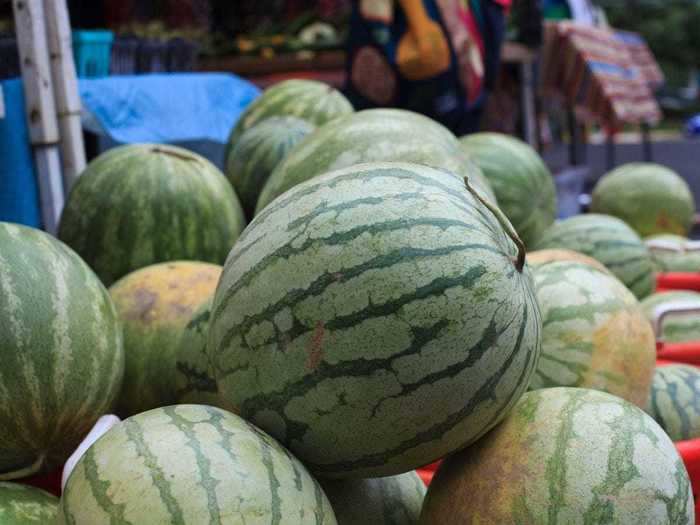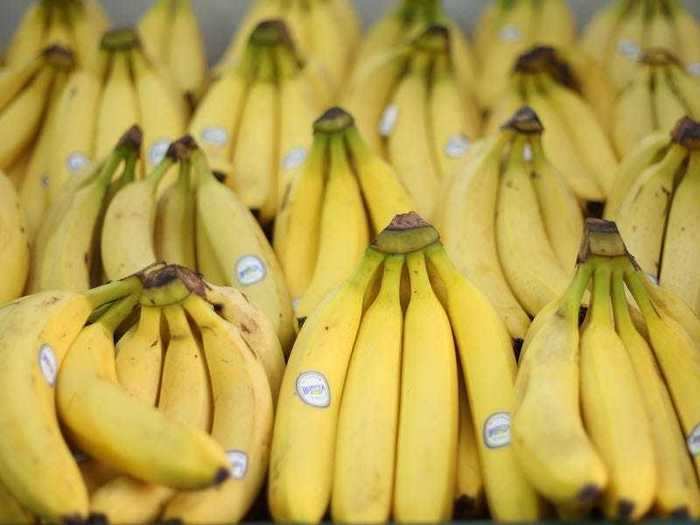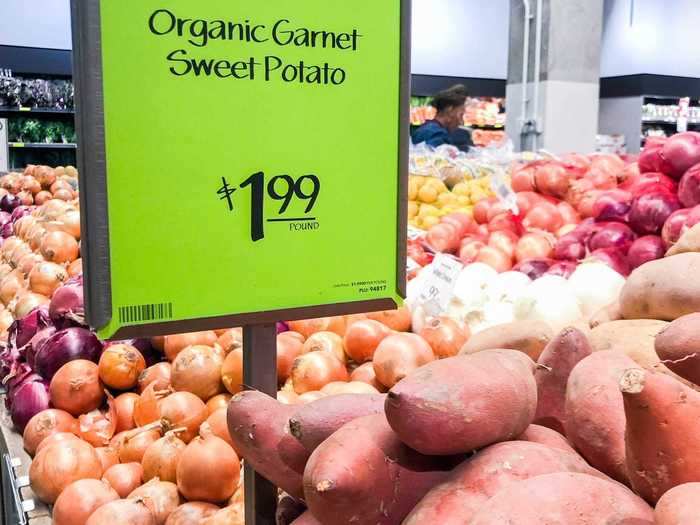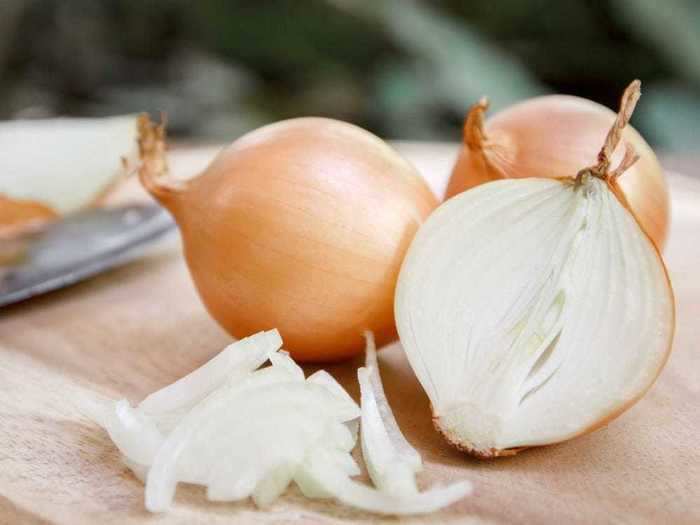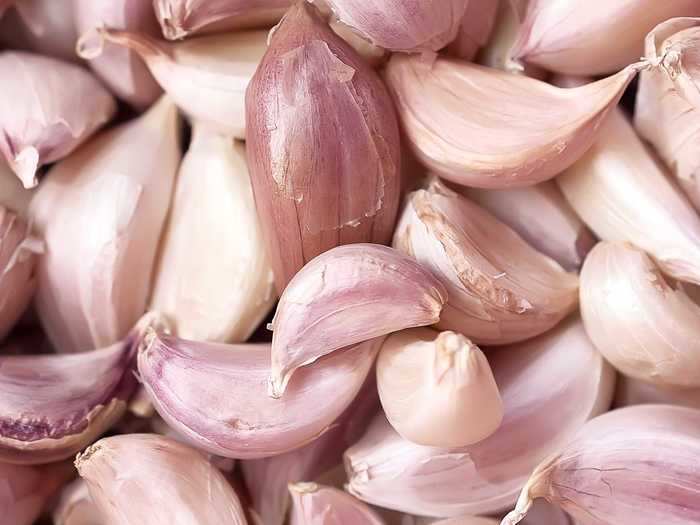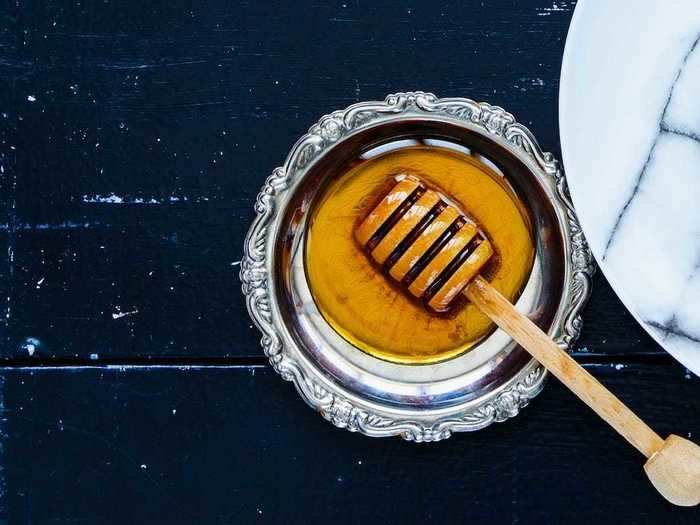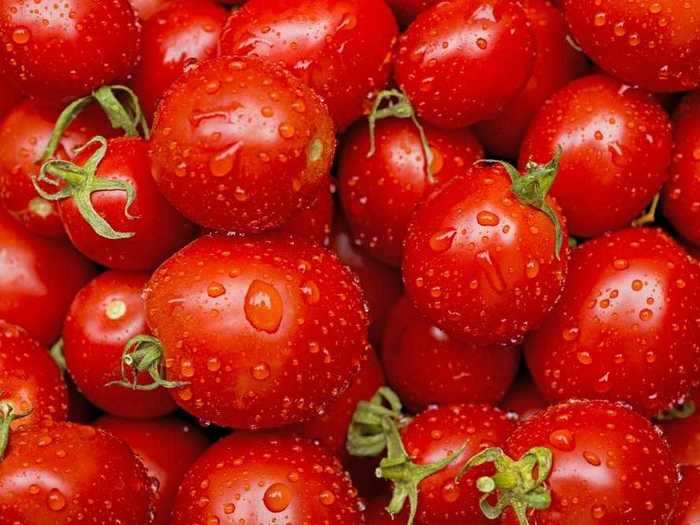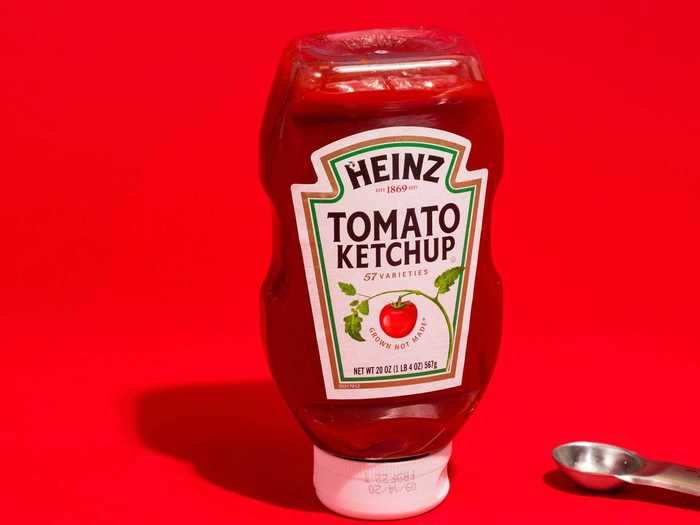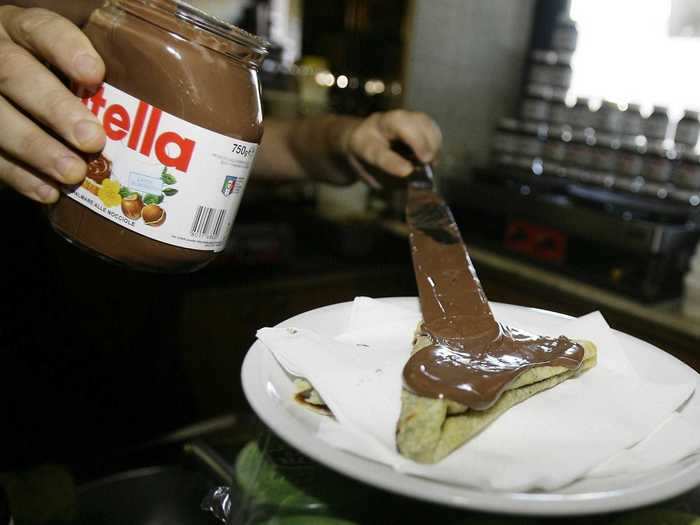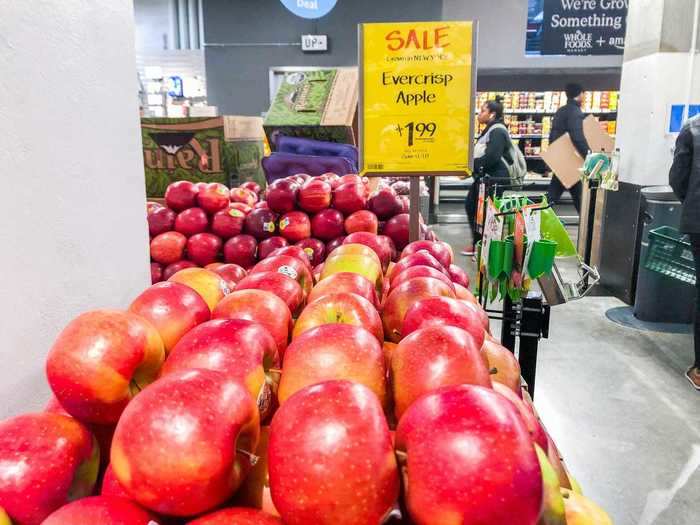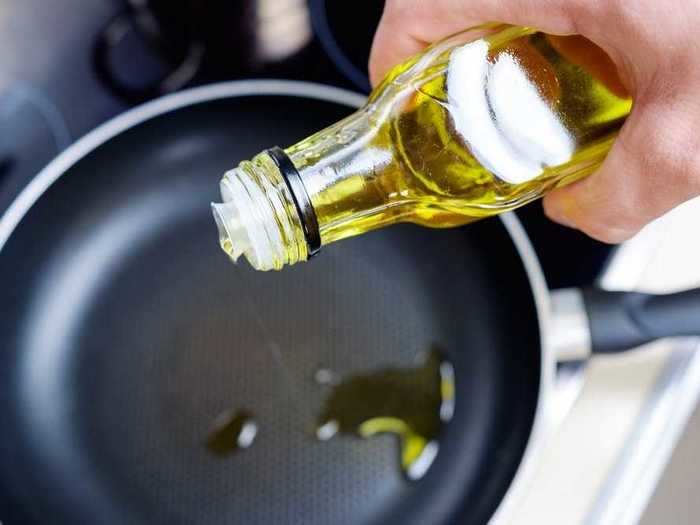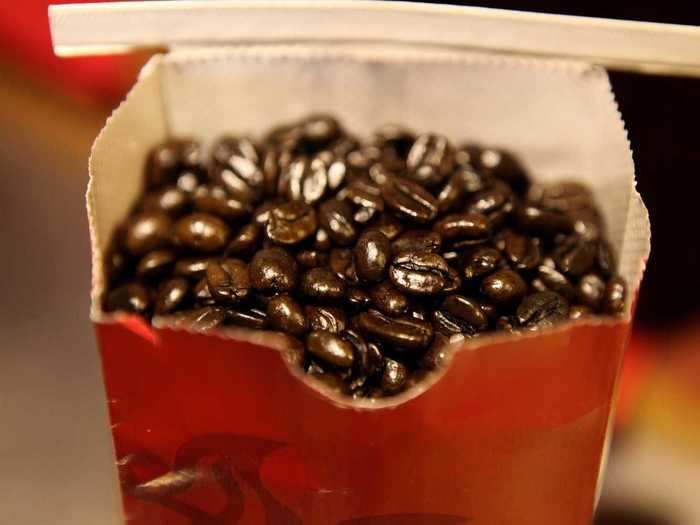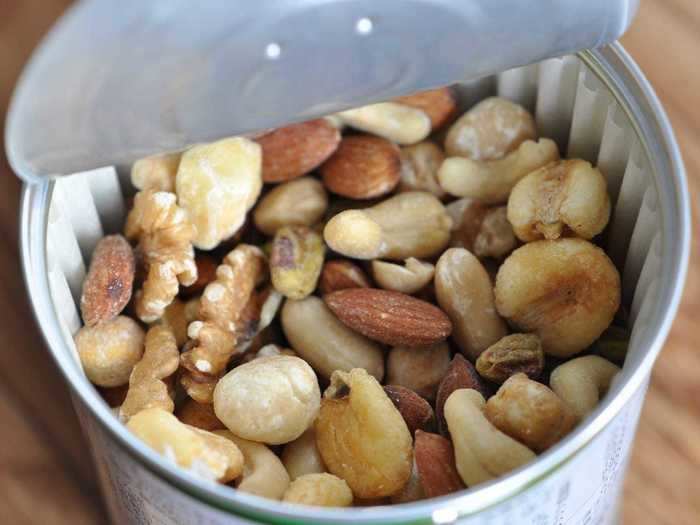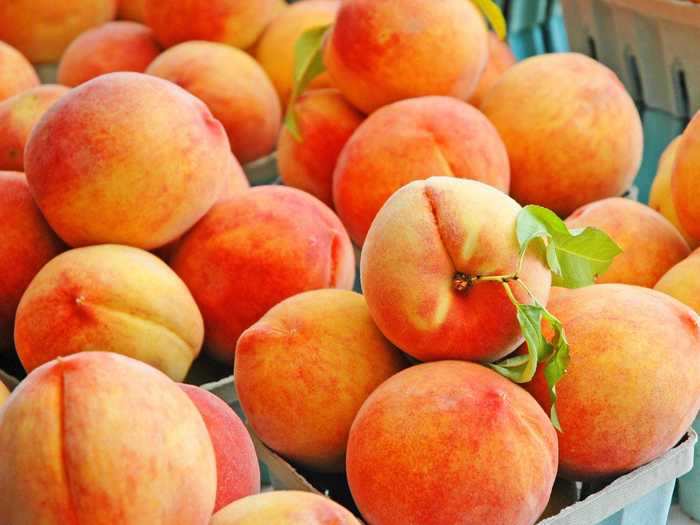Get those tomatoes out of there.Andrey_Popov/Shutterstock - Using your refrigerator to store foods can be essential to keeping ingredients fresh.
- At the same time, the cool air can have a negative effect on plenty of your groceries.
- Cold air can break down root vegetables like potatoes and onions, and bread can dry up if kept in a chilly environment.
Your refrigerator is meant to keep food fresh, but cold temperatures do not work for every grocery item.
For example, root vegetables like potatoes and onions actually rot faster. And if you're worried about fitting your watermelon in your fridge, just keep it out on the counter. Melons only need to be kept in the fridge once they're cut open.
There is an art and science to organizing your refrigerator. Keep reading to find out what should be left on the counter.
Read the original article on
Insider
Instead of struggling to find space for watermelons in your fridge, keep them on the counter until they have been sliced open.
Only refrigerate your melon once it is sliced.
AP Photo/J. Scott Applewhite
Whole melons like watermelons, honeydews, and cantaloupes retain their flavor best at room temperature. Storing them at normal temperatures may even help keep their nutrients intact. Plus, they take up a lot of space in the fridge.
Only once they're cut should you refrigerate them, and only for a few days at most.
Bananas should be left to ripen at room temperature.
Bananas rot faster in moist environments.
Sandra Mu/Getty Images
Bananas keep their flavor better at room temperature. Plus, cold temperatures will only slow them from ripening, and the moisture from the fridge would only speed up the rotting process.
Cold temperatures break down the starch in potatoes, causing them to taste sweeter.
Keeping potatoes in a cool and dark spot is best.
Joey Hadden/Insider
It's fine to store potatoes in a cool place — too much heat and they'll rot — but a refrigerator is too cool. It'll break down the starches and make the texture gritty, and possibly turn the flesh brown or black.
Similar to melons, if onions are sliced, place them in the refrigerator. But if they are whole, the fridge will only make them mushy and moldy.
The fridge does not help onions stay fresh.
NUM LPPHOTO/Shutterstock
Like potatoes, onions are stored best in cool and dry places. Unfortunately, the humidity of a fridge can turn onions moldy very quickly.
If you ever notice your garlic starting to grow sprouts, it is a sign you aren't storing it properly.
If your garlic is extra soft, it has begun to spoil.
Shutterstock
Keep your garlic somewhere dry to prevent the accumulation of mold or a mushy texture. The chopped cloves, though, can be stored in a refrigerator for a couple of weeks.
Cold temperatures are what jump-starts the crystallizing process in honey, so it's best to store your jar at room temperature.
Room temperatures help honey maintain its gooey consistency.
Shutterstock
For the candy inclined, frozen honey is an underrated snack. But at merely cool temperatures, honey crystallizes and becomes lumpy. Honey almost never spoils, so feel free to store it at room temperature for as long as you want.
Tomatoes belong on the counter or windowsill.
Cold temperatures serve no good for tomatoes.
Serhii Yushkov/Shutterstock
The temperature can dull the flavor of tomatoes and make the texture mealy, so store them on the counter instead. If they start getting too ripe, feel free to put them in the refrigerator, but not for too long.
Hot sauce usually has enough vinegar to keep it fresh without you having to leave it in the fridge.
The heat coming from peppers is much more potent at room temperature.
David McNew/Getty
Similar to hot sauce, ketchup also belongs in the pantry, not the fridge.
Ketchup can preserve itself on the counter.
Hollis Johnson/Insider
The same goes for ketchup. The high vinegar content should preserve its integrity and keep it fresh at room temperature.
Refrigerating your bread only dries it out.
If you have too much bread on your hands, it's better to place a loaf in the freezer to preserve its freshness.
Caroline Fox/Insider
Trick entry. Bread is best kept in the freezer, where it'll basically last forever. The countertop is also a viable option if you'll eat it quickly. But in the fridge, your bread is doomed to become moldy and dry very quickly.
Nutella or any hazelnut chocolate spread only loses its flavor in cold temperatures.
If you want Nutella to remain spreadable, store it at room temperature.
Alberto Pellaschiar/AP
Nutella or chocolate hazelnut spread will be fine at room temperature. When it's cold, it gets clumpy, harder to spread, and loses its flavor.
Apples will stay perfectly ripe on your counter and brighten up your kitchen.
You can place your apples in the fridge if you haven't eaten them after two weeks of sitting out.
Joey Hadden/Insider
For the most part, apples will last pretty long on a countertop. It'll also give your kitchen a nice splash of color. If it takes you more than a couple of weeks to eat them, then put them in the fridge to make them last a little longer.
Olive oil begins to clump under colder temperatures and is best left on the countertop.
Keep your olive oil by the spices instead of deep in your fridge.
Iurii Stepanov/Shutterstock
When it gets cold, olive oil turns semi-frozen and becomes a clumpy, slippery form. It's best to store it at room temperature.
The humidity in the fridge can alter the taste of your coffee beans, so it's better to keep them sealed tight in the pantry.
Keep your coffee beans in a sealed container.
Noor Khamis / Reuters
The watery condensation that often comes from a fridge can begin to change the flavor of ground or solid coffee beans. To optimize your coffee flavor, all you need to do is keep it sealed in an airtight container on your counter.
Just like coffee beans, nuts also are best stored in a sealed container at room temperature.
Keep your nuts in the pantry for optimal freshness.
Shutterstock
The cold temperature from a refrigerator can ruin the nutty flavor. Plus, shelled nuts will start to absorb other odors and smells from within the fridge, so it's always best to just keep them sealed up in your pantry.
If you're waiting for your peaches, nectarines, plums, and apricots to ripen, just keep them at room temperature.
Keep your peaches on the countertop where you won't be able to resist them.
Shutterstock
Stone fruit can probably last a few more days in the fridge if you didn't have enough time to enjoy them, but room temperature is the best situation to allow them to ripen and remain fresh.
The old legend of keeping batteries in the refrigerator is just wrong.
OK, it's not food, but this needs to be said.
Shutterstock
There's an urban legend that storing batteries in cold or freezing temperatures will increase their durability. It's false. Just keep them in the same drawer where you keep other appliances and mismatched wires.

